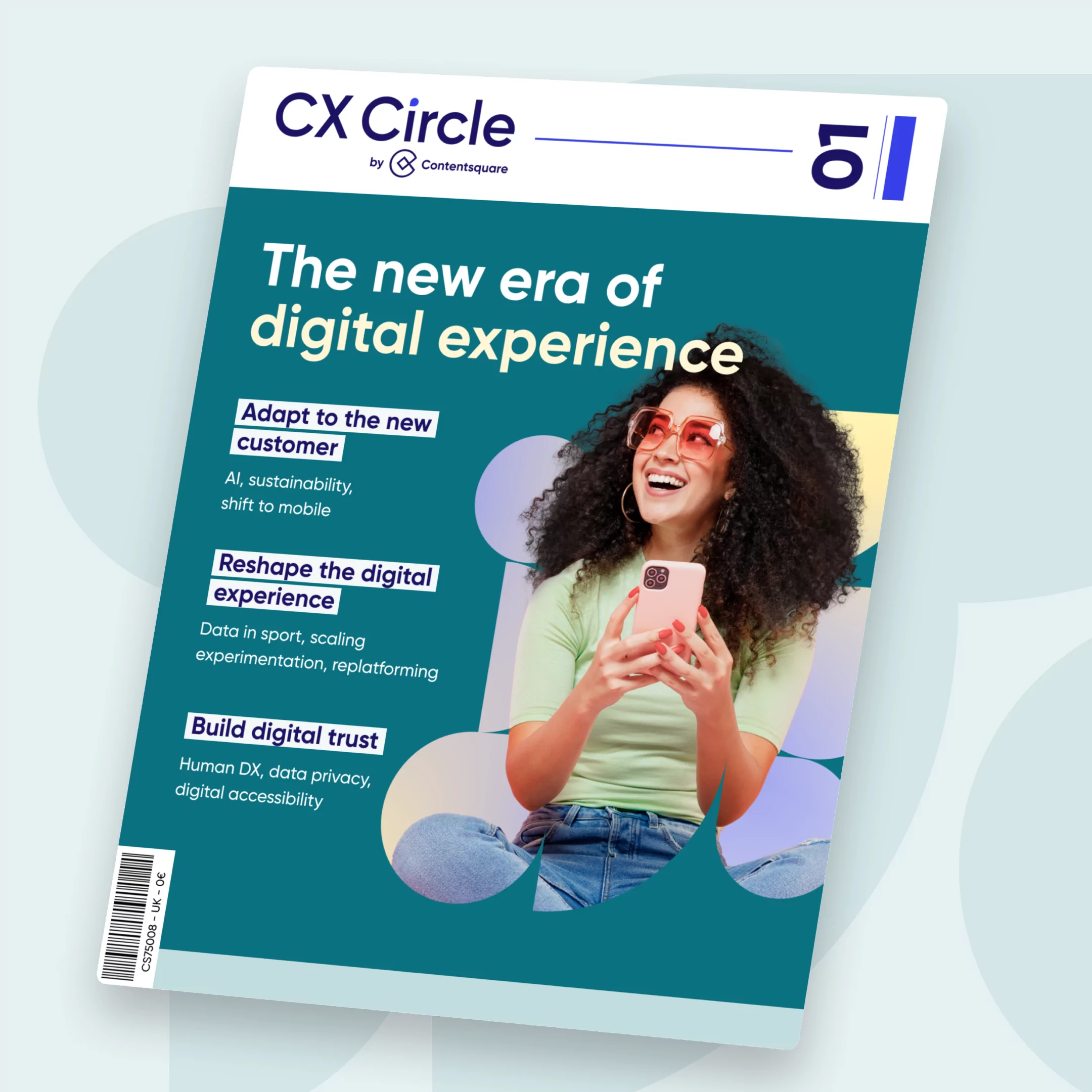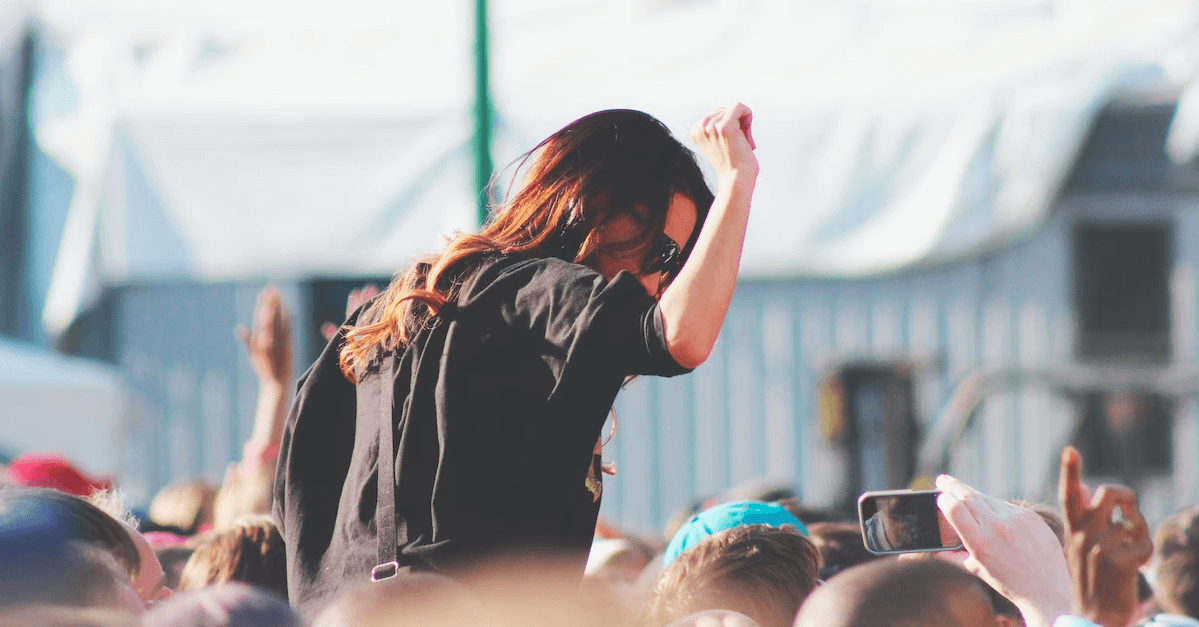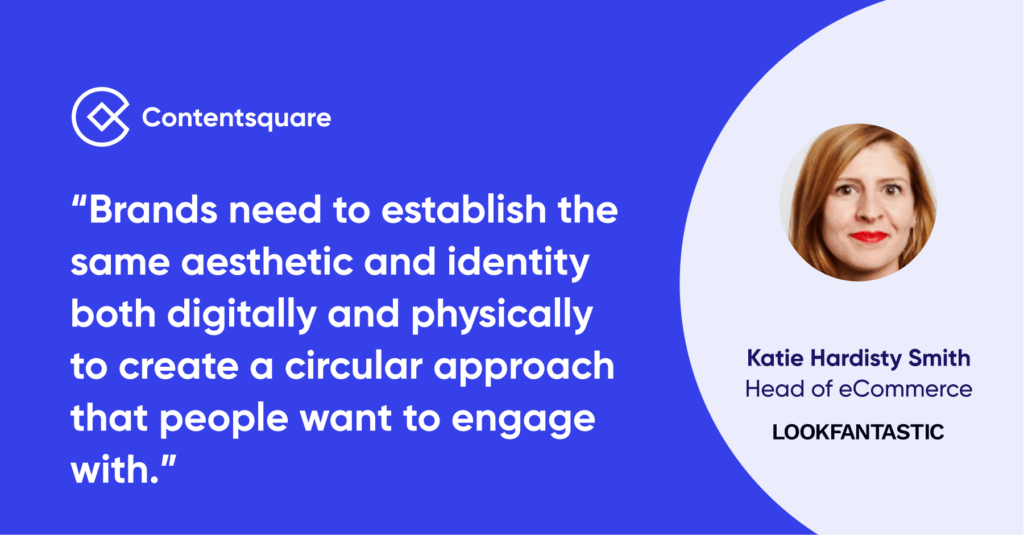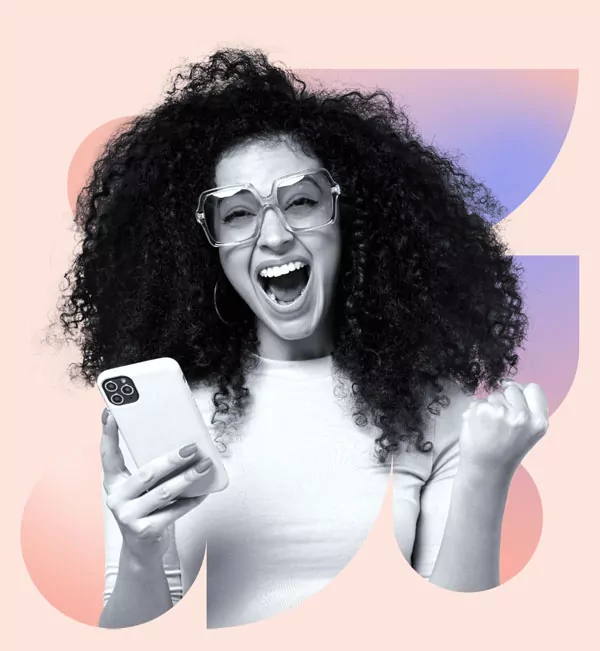
Discover the new era of digital experience
Learn from 28 digital experts from brands like Spotify, Hobbycraft, Kingfisher and more.

This article seeks to answer all these questions and looks at practical examples from the recent CX Circle talk given by Katie Hardisty Smith, Head of eCommerce at LOOKFANTASTIC.
Today’s forward-thinking brands seek stronger connections with their customers. They’re looking for more loyalty, deeper engagement, and an increased customer lifetime value (CLV) based on trust and long-term relationships. For many, the phygital customer experience is the answer.
If you hadn’t sussed it out yet, Phygital is a portmanteau word combining (phy)sical and dig(ital). It describes the process of using technology to link the customer experience in the physical and digital spaces. For traditional brands, this means taking the best of the in store experience and replicating that personal service online. For digital-first brands, it means finding ways to expand the digital experience into the physical and add elements of the classic in store experience for customers.

Discover the new era of digital experience
Learn from 28 digital experts from brands like Spotify, Hobbycraft, Kingfisher and more.
Phygital also means unifying the customer experience across digital and physical channels. There must be synergy. Or, as Katie Hardisty Smith put it in her talk: “Brands need to establish the same aesthetic and identity both digitally and physically to create a circular approach that people want to engage with.”
Brands can do this in different ways. It might be as simple as allowing easy online ordering for in-store pick up. It could mean installing tablets or other digital devices in physical stores where customers can search for specific stock or place orders. Or it could involve creating real-world events that customers can attend in person or stream online.
Smartphones are embedded into our daily lives, taking up around 40% of our waking hours, on average. Phygital is the natural response to this. Customers want to be able to access their favourite brands at any given time via any channel. In that sense, the phygital experience is also the natural next step from the concept of the omnichannel customer experience.
There are many potential benefits for brands that create compelling phygital experiences.
The first is to increase customer loyalty and retention. Brands that can provide seamless experiences across channels will stand out to customers. By contrast, those that can’t will frustrate and irritate customers, driving them away.
Consider a brand which offers a quick and easy store locator and gives you a choice of locations for picking up online orders. Or a clothing store that allows you to order online and then offers to pick up any returns from your door.
Offering consistency and personalised service across channels is table stakes in today’s competitive eCommerce environment. Get it right, and customers will keep on returning.

Another key benefit of Phygital is increased brand awareness. Setting up an engaging pop-up stall in a buzzing shopping mall can drive traffic to a brand’s website to take advantage of exclusive offers, for example.
Curating and serving the right content to customers via social media, messaging apps and email can generate a huge amount of buzz around a brand, especially if those messages are tied in with physical events like the in-store launch of a new product that digital subscribers get notified about in advance.
Creating phygital experiences can help you stand out from your competitors. In her talk, Katie Hardisty Smith mentioned an example of a poor phygital experience. In her case, a clothing store had persuaded her to buy multiple items at once thanks to personalised messaging, tailored web pages and tailored offers. Sadly, she had to return some items. To do so involved visiting a physical store where the service was terrible.
This created a disconnect between the online and physical environments, which is deadly to providing a true, phygital experience. Most brands still don’t do this well. As a result, those that do really stand out in the minds of customers. In her talk, Katie went on to mention the superb click-and-collect service provided by one of the UK’s biggest grocery stores, ASDA. Free advertising to a room of marketing professionals—all from a single positive phygital experience.

Watch CX Circle talks on-demand
The CX Circle Hub is your go-to source for all things customer experience.
While there are many more potential benefits to getting this right, the main one is of course the boost brands receive in sales and conversions.
Offering a great omnichannel experience across phytigal and digital, leads to driving more footfall to stores from online traffic, and more online traffic from store visitors. It means building a real bond with customers which makes your brand top of mind for them. And it means they’ll prefer to buy from you over others in your space.
It’s all well and good talking about what phygital is and its potential benefits. You likely want some ideas about how to incorporate this with your brand. This is where Katie Hardisty Smith’s recent CX Circle talk proved very useful, as she went through several examples of where her online beauty brand LOOKFANTASTIC. had applied the concept successfully.
This is especially interesting since LOOKFANTASTIC. is a digital-only brand which operates without any physical stores. How can a brand without a permanent physical presence get phygital?
Pretty easily, it turns out, with a little strategic thinking and the help of some clever technology.
The first example she gave was of a LOOKFANTASTIC trip to the Coachella Valley arts and music festival in California. The company took a couple of beauty influencers on the journey and brought the whole experience to life for their customers via their social media channels.
They hosted Q&As with their influencers. They streamed live shopping on TikTok. In short, they digitised the physical experience, recreating it for the thousands of customers who would never get the chance to visit Coachella.
To boost brand awareness, they set up their own pop-up stand in the Arndale Shopping Centre in Manchester and the Battersea development in London.
“This allowed us to interact with our customers, build our brand, give experiences new life and meaning digitally—so we could then drive a sustained experience,” Katie said.
One really impactful phygital experience involved the introduction of the Foundation Finder tool to their website, which Katie described as “a game changer”.
“Traditionally, finding the right foundation for you has been a visit to one of the numerous beauty counters within a large department store where we put our faith in a makeup artist already wearing too much foundation herself to actually find the right match in those lights,” she said.
The Foundation Finder asks a series of questions, for example about the customers’ skin tones and preferred coverage, with a database of 3,500 swatches from multiple brands. This helps the user to find their shade in the foundation of their choice based on what they currently use.
“Whether you’re a working mom that needs a fast alternative foundation or you’re a Tik Tok-obsessed beauty lover that wants that full community experience, we have got something for you and we are there with you whenever you need us,” Katie concluded.
This is the secret of success when it comes to creating your own phygital experiences. Focus on your customer needs and—with the help of the right technology, strategic thinking and some experimentation—you’ll be able to come up with experiences that your customers will love too.